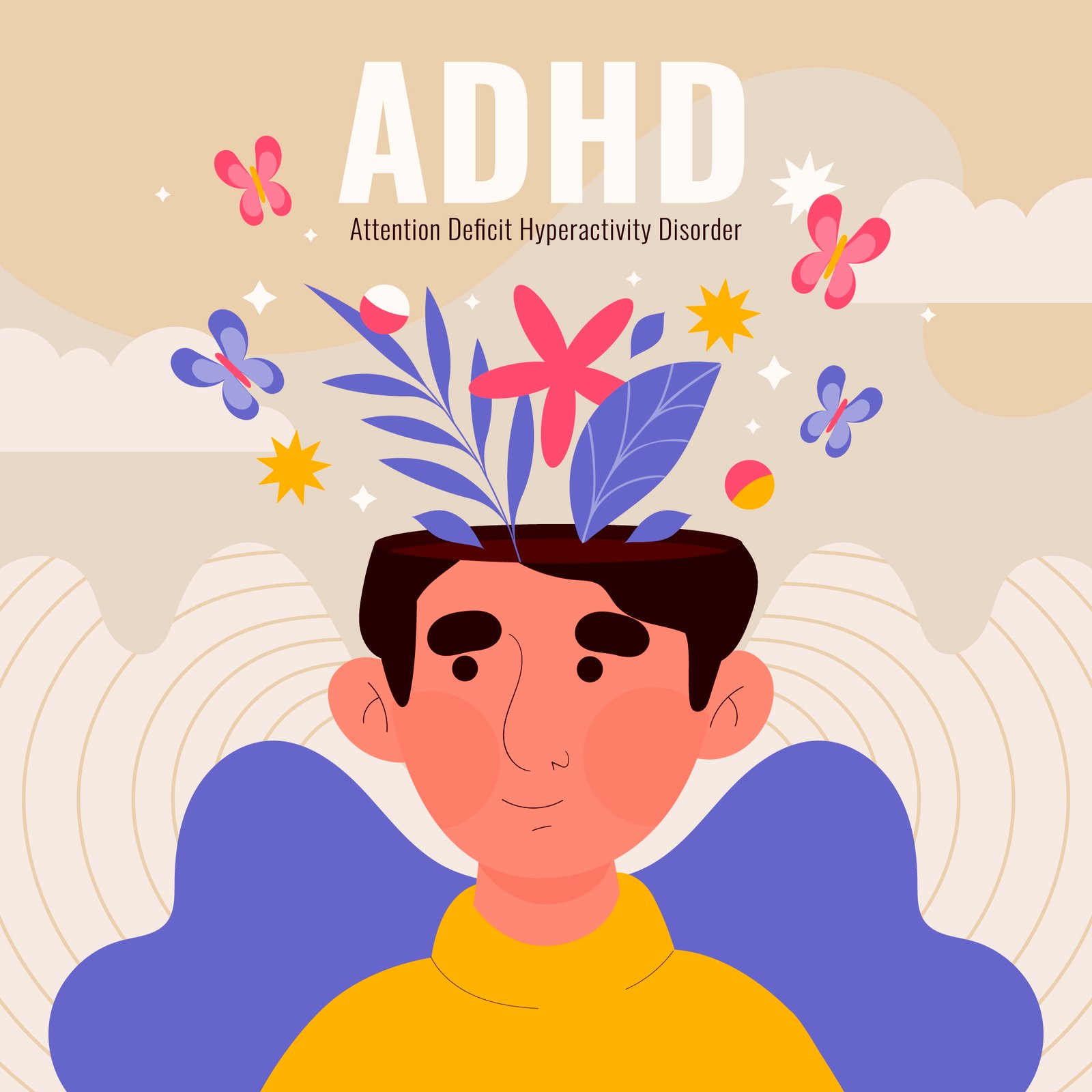Living with ADHD presents its own set of challenges, but for those who have experienced trauma, these challenges can be magnified. Understanding the connection between ADHD and trauma is crucial for survivors to navigate their healing journey effectively. This blog post aims to shed light on how trauma affects ADHD and provide practical strategies for managing its impact.
Trauma can have a profound impact on brain development and function, particularly in areas related to attention, impulse control, and emotional regulation—key areas affected by ADHD. When a person experiences trauma, the brain’s fight-or-flight response is activated, releasing stress hormones like cortisol and adrenaline. While this response is essential for survival, chronic exposure to stress can lead to alterations in brain structure and function. For individuals with ADHD, these changes can exacerbate symptoms, making it harder to focus, control impulses, and manage emotions.
One of the primary ways trauma affects ADHD is through heightened emotional reactivity. Trauma survivors often experience intense emotions and may struggle with regulating them. This emotional dysregulation can make the symptoms of ADHD more pronounced. For instance, a minor frustration might trigger a significant outburst or lead to a prolonged period of emotional turmoil. Understanding this link can help survivors develop strategies to manage their emotional responses more effectively.
Another critical aspect to consider is the overlap between PTSD (Post-Traumatic Stress Disorder) and ADHD symptoms. Both conditions can cause difficulties with concentration, memory, and emotional regulation. However, while ADHD is a neurodevelopmental disorder present from early childhood, PTSD results from exposure to traumatic events. It’s not uncommon for trauma survivors to have both ADHD and PTSD, making it essential to differentiate between the symptoms and address each condition appropriately.
Healing from trauma while managing ADHD requires a multifaceted approach. Here are some strategies that can help:
Therapeutic Interventions
Cognitive Behavioral Therapy (CBT) and trauma-focused therapies like EMDR (Eye Movement Desensitization and Reprocessing) can be particularly effective. These therapies help individuals process traumatic memories and develop healthier coping mechanisms.

Mindfulness Practices
Incorporating mindfulness into daily routines can help reduce stress and improve emotional regulation. Simple practices like mindful breathing or guided meditation can provide a sense of calm and help ground individuals in the present moment.

Support Networks
Building a supportive network of friends, family, and mental health professionals is crucial. Sharing experiences and receiving validation can alleviate the burden of managing ADHD and trauma alone. Support groups for ADHD and trauma survivors can also provide valuable insights and encouragement.
Physical Activity
Regular exercise is beneficial for both mental and physical health. Activities like yoga, walking, or dancing can help release built-up tension and improve mood by boosting endorphin levels. Finding an activity that is enjoyable and incorporating it into a daily routine can make a significant difference.
Self-Compassion
Practicing self-compassion is essential for trauma survivors with ADHD. It’s important to recognize that setbacks are a natural part of the healing process. Being kind to oneself and acknowledging progress, no matter how small, can foster resilience and a positive outlook.
Routine and Structure
Establishing a consistent routine can help manage ADHD symptoms. Creating a structured daily schedule that includes time for work, rest, and self-care activities can provide a sense of stability and predictability, which is especially beneficial for those with ADHD and trauma.
Professional Help
Consulting with a healthcare professional who specializes in ADHD and trauma can provide tailored treatment plans. Medication, therapy, or a combination of both might be recommended based on individual needs.
Understanding the intricate relationship between trauma and ADHD is essential for effective management and healing. By acknowledging the impact of trauma on ADHD symptoms, survivors can take proactive steps to improve their well-being. It’s important to remember that healing is a journey, and with the right support and strategies, it is possible to lead a fulfilling and balanced life.
Trauma survivors with ADHD should feel empowered to seek help and explore different coping mechanisms. Whether through therapy, mindfulness, or support networks, finding what works best is key to navigating the complexities of both conditions. Embracing the journey with self-compassion and resilience can lead to profound growth and healing.
Iram Gilani
Author | Speaker | Mentor
Book: Invisible Tears
www.IramGilani.com
Contact@IramGilani.com











